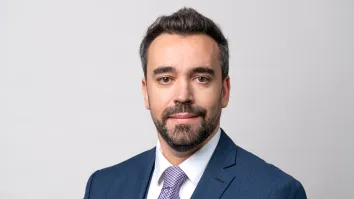
Climate risks are still insurable in global South – Howden
In his keynote speech at COP28, the CEO and founder emphasised the potential of loss and damage fund.
Contrary to the belief that climate risks for countries in the Global South are uninsurable, Howden Group argues that the issue lies in the lack of sufficient scale to pay the required premiums. David Howden, founder and Chief Executive Officer, highlighted the potential of the loss and damage fund to change this dynamic.
“And this got me thinking how do you bring these two things together – how do we use the power of the private sector to both protect vulnerable countries and to unlock investment in their future?” he said in a press release.
The CEO put forward a groundbreaking proposal at COP28 to address the consequences of climate change for vulnerable countries. Howden, representing Howden Group, emphasised the role of the private sector in protecting nations against climate risks and unlocking investments in their future.
During COP26, Mia Mottley's inquiry about protecting vulnerable countries prompted discussions on the private sector's involvement. The subsequent COP27 saw a landmark agreement on Loss and Damage, inspiring Howden to explore the synergy between leveraging the private sector and addressing the needs of vulnerable nations.
In collaboration with Cambridge University, Howden commissioned research that modelled the risks for these vulnerable countries, calculating the necessary funds to protect them.
The unique approach examined losses as a percentage of GDP, shifting the focus from protecting physical assets to safeguarding entire economies.
ALSO READ: Howden buys majority stake in HQ Insurance
The research revealed that the smallest and most vulnerable countries face the risk of losing over 100% of their GDP from extreme climate shocks.
“Everything points to climate disasters getting worse before they get better but the economic impact on those worst hit need not. Capping the loss at 10% of GDP, and guaranteeing pre-agreed funding, paid immediately, provides certainty and the confidence to invest. And we have put a price on that,” Howden said.
However, by capping the loss at 10% of GDP, Howden demonstrated that $1b from the targeted $100b Loss and Damage fund could secure around $75b of protection.
The proposed solution involves providing guaranteed, pre-agreed finance to respond to disasters and create certainty, making vulnerable countries more attractive to investors.
Howden stressed the efficiency and non-political nature of this approach, providing funds without relying on media attention.
Highlighting the slow response to international donations, as seen in the case of Pakistan's floods, Howden advocated for contractually guaranteed pre-agreed finance, emphasising its efficiency compared to post-event relief efforts.
He urged climate-vulnerable countries to collaborate, called for private sector support, and sought backing from donor countries to implement this transformative solution.
By providing certainty and immediate funding, Howden believes this approach can revolutionize the preparation and protection of the most vulnerable nations against the impacts of climate change, paving the way for a more resilient future.
This proposal, if implemented, could leave a powerful legacy from COP28, transforming the way the world addresses the devastating effects of climate change on the most vulnerable populations.



















 Advertise
Advertise





